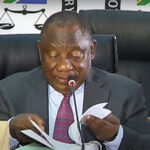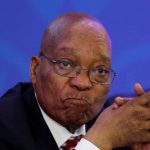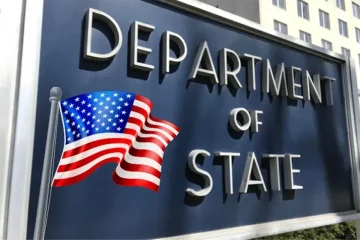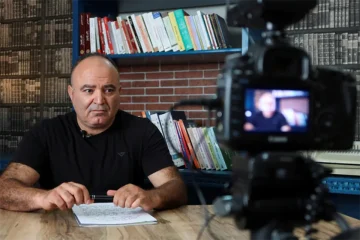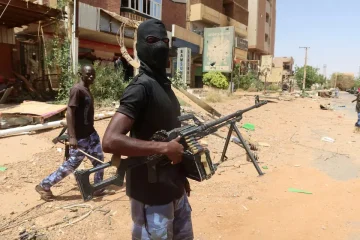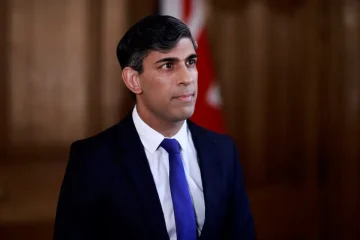AFRICAN MIRROR REPORTER
PUBLIC Protector Advocate Busi Mkhwebane was wrong on the facts and in the law when she found that South African President Cyril Ramaphosa wilfully misled parliament about a R500 000 donation for his campaign as ANC president, the Constitutional Court has found.
In a majority judgment delivered by Judge Chris Japhta, the court found that there was no evidence that Ramaphosa had personally benefited from the donation made to his campaign by Bosasa, the company which has changed its name to African Global Operations (AGO). “The truth which the Public Protector was seeking was whether the President had personally benefitted from the CR17 campaign donations. She has failed to discover this,” said Japhta.
Japhta expanded: “What the Public Protector was required to do in order to address the President’s argument, was to refer to facts which established that the President received donations and that he failed to declare them. If such facts existed, the Public Protector would have referred to them in dealing with the President’s argument. The omission of those facts from her report is not an oversight. They simply do not exist.
“In the final paragraph of the Public Protector’s reasoning, she suggests that the President received donations which he was obliged to disclose under the Code and the Members Act. This is a finding made without a shred of evidence supporting it. On the contrary, the evidence placed before the Public Protector which is also reflected in the report, establishes that the President did not receive donations. Therefore, the argument advanced by the President was in line with the evidence on record. On the basis of the undisputed evidence, it was the CR17 campaign that received donations and not the President.
“It is a leap in logic to hold that the President personally benefitted from the donations made to the CR17 campaign. That campaign, on the undisputed evidence, existed separately from the President. And there was no evidence that it was appointed to act as his agent. There is therefore no basis in law to regard donations to the CR17 campaign as personal benefits to the President.”
The court was scathing on Mkhwebane, finding that she had irregularly changed the wording on the executive member code, in her report.
“The Public Protector’s report reveals that, on the facts placed before her, she accepted that the President did not wilfully mislead Parliament. This meant that he could not have violated the Code. The Public Protector then changed the wording of the Code to include “deliberate and inadvertent misleading” so as to match with the facts. Having effected the change in the Code, the Public Protector proceeded to conclude that the President had violated the Code. It is unacceptable that the Public Protector did what no law had authorised her to do,” Japhta said.
The court also found that the Public Protector did not have the power to investigate private donations made to a political party. “She was plainly not authorised to investigate the issue whether the President personally benefitted from donations made to the CR17 campaign. The condition precedent for undertaking such investigation did not exist. Section 4 of the Members Act mandates the Public Protector to investigate violations of the Code only if there is a complaint by one of the persons listed in the section. Here, the complaints received by her did not require her to investigate the President’s failure to disclose benefits derived from the CR17 campaign donations,” Japhta said.
The court also found that Mkhwebane had no authority to order, as she did in her remedial action, that the Speaker of Parliament should order Ramaphosa to disclose donors to his campaign. It also found that the Public Protector did not have the power to order the National Director of Public Prosecutions to investigate prima facie evidence of money laundering by Ramaphosa’s campaign – known as CR17.
In effect, the Constitutional Court ruling upheld a ruling by the North Gauteng High Court that set aside the Public Protector’s findings after it found them to be, among others, irrational. It rejected Mkhwebane and the Economic Freedom Fighters’ appeal against this judgment.
In her report, now set aside, Mkhwebane found that Ramaphosa deliberately misled Parliament and had an improper relation with AGO.
The ruling would be a blow to Mkhwebane, who has suffered a series of losses in the courts and is facing a Parliamentary inquiry into her fitness to hold office.
Judge Japhta wrote the majority judgment which was supported by Justices Madlanga, Mathopo, Mhlantla, Theron, Tshiqi and Victor. Chief Justice Mogoeng Mogoeng wrote the minority judgment.



